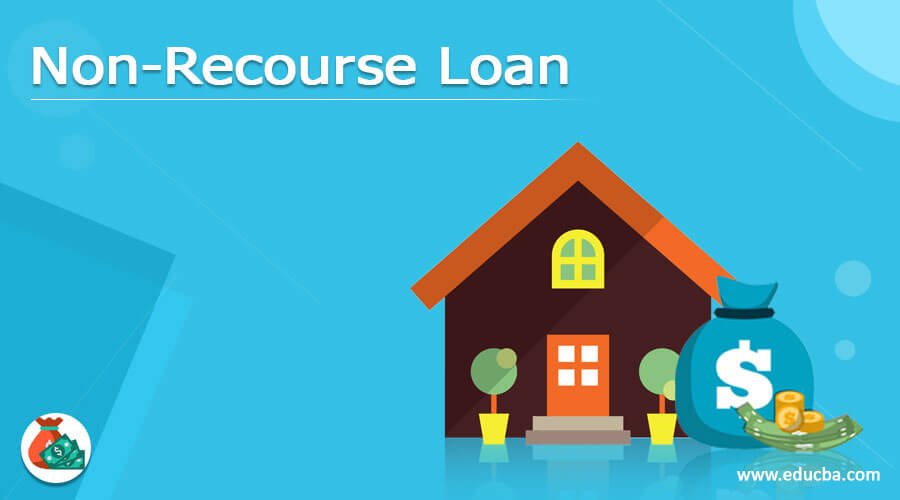Updated July 10, 2023
What is a Non-Recourse Loan?
The term “non-recourse loan” refers to the loan type secured by collateral, usually the funded property. If the borrower defaults on the debt payment, the lender has the legal right to seize the collateral for foreclosure to recover the pending debt balance.
However, if the collateral fails to cover the defaulted amount, the lender can’t contact the borrower for the deficit amount. In short, the lender limits the borrower’s liability to the value of the collateral, with no personal liability beyond that amount.
Lenders often offer non-recourse loans to individuals or businesses with excellent credit histories, as prospective borrowers may be drawn to these loans’ limited personal liability feature. However, the higher interest rates associated with these instruments directly result from their inherent riskiness.
Examples of Non-Recourse Loan
Let us look at some examples of non-recourse loans to understand the underlying principle of these financial instruments.
Example #1
Three years back, Samuel got a non-recourse 36-month auto loan of $36,000 for purchasing a car worth $40,000. However, after paying for 16 months, he couldn’t make any further monthly payments, leaving a pending outstanding balance of $20,000. The lender seized the car, whose market value was $18,000. So, the lender could only recover $18,000 by selling the car, resulting in a shortage of $2,000 (= $20,000 – $18,000). However, since it was a non-recourse loan, Samuel remained liable for the remaining $2,000, and the lender could not pursue a deficiency judgment against him. Instead, the lender had no option but to swallow the loss peacefully.
Example #2
John and Jane both got home loans of $240,000 each in their capacity. Both loans had to be paid off within ten years by paying $2,000 per month. While John managed to get a non-recourse loan to purchase the house, Jane had to contend with a recourse loan becoming personally liable in case she defaulted.
After making timely payments for two years, they defaulted on their debt payments due to the ongoing pandemic resulting in their employment loss. During these two years, they paid $24,000, with another $216,000 pending debt. However, the market value of the houses at that point was $190,000 only. The lender seized their houses and only managed to recover $190,000, leaving the remaining $26,000 pending.
Now, John availed of a non-recourse loan, so he had no liability to pay off the remaining $26,000. But on the other hand, Jane could only get a recourse loan, so she had to pay the pending amount from her assets. So, this example clearly shows why a lender has to be more cautious while extending a non-recourse loan.
How to Obtain a Non-Recourse Loan?
In the case of non-recourse loans, the lender assumes the majority of the risk. Therefore, it is no wonder that a non-recourse loan has much stricter criteria than a recourse loan. Typically, commercial lenders only offer non-recourse loans to fund some particular types of properties and only to borrowers with stellar credit quality. Therefore, the borrowers must have a stable financial position and an excellent credit score to qualify for non-recourse loans. Besides, the funded property should be in a larger city and in good condition. Other important criteria include a low loan-to-value (LTV) ratio, a stable source of income, and a healthy debt service coverage ratio (DSCR).
Advantages of Non-Recourse Loan
Some of the major advantages of a non-recourse loan are as follows:
- First, since the borrower doesn’t need to become a loan guarantor, there is no personal liability for the borrower.
- It is one of the best sources of external funds to invest in large real estate properties, such as apartments, strip malls, complexes, etc.
- These loans are less complicated than recourse loans that require personal guarantees; hence they are suitable for partnership businesses and syndication investors.
Disadvantages of Non-Recourse Loan
Some of the major disadvantages of a non-recourse loan are as follows:
- First, borrowers with low credit scores may find it difficult to obtain a non-recourse loan as the lenders view these loans as high-risk.
- The non-recourse loan lenders can’t get a deficiency judgment in their favor to seize the borrowers’ other properties to recover their spending money.
- Given the inherent risk of capital loss, these loans often come at higher interest rates.
Key Takeaways
Some of the key takeaways of the article are:
- In a non-recourse loan, the borrower’s liability is limited to the value of the collateral, typically the real estate property being funded.
- In case of a default, the lender can only seize the collateral but can’t hold the borrower liable if the foreclosure doesn’t cover the entire defaulted amount.
- Non-recourse loans typically feature high capital, high-interest rates, and long-term periods.
- For non-recourse loans, the lenders usually prefer borrowers with high credit standards.
Conclusion
So, non-recourse loans are a great funding source for borrowers investing in large real estate properties. These loans are characterized by high capital expenditure, long-term periods, and a steady source of income. Financing these loans requires a sound understanding of the underlying factors of the business. Lenders usually enforce strict credit standards on borrowers to minimize the chances of default. Due to such high risk, non-recourse loans usually carry higher interest rates than recourse loans.
Recommended Articles
This is a guide to a Non-Recourse Loan. We also discuss the definition, example, and advantages and disadvantages of obtaining a Non-Recourse Loan. You may also have a look at the following articles to learn more –




